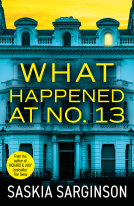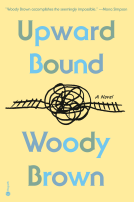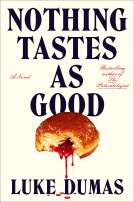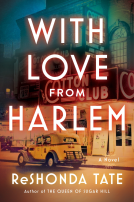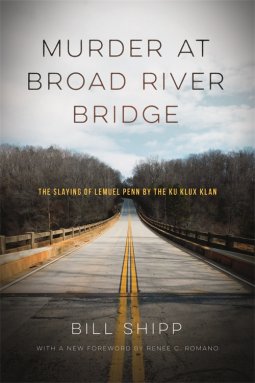
Murder at Broad River Bridge
The Slaying of Lemuel Penn by the Ku Klux Klan
by Bill Shipp
This title was previously available on NetGalley and is now archived.
Send NetGalley books directly to your Kindle or Kindle app
1
To read on a Kindle or Kindle app, please add kindle@netgalley.com as an approved email address to receive files in your Amazon account. Click here for step-by-step instructions.
2
Also find your Kindle email address within your Amazon account, and enter it here.
Pub Date Sep 15 2017 | Archive Date Nov 15 2017
Description
First published in 1981, Murder at the Broad River Bridge recounts the stunning details of the murder of Lieutenant Colonel Lemuel Penn by the Ku Klux Klan on a back-country Georgia road in 1964, nine days after the passage of the Civil Rights Act. Longtime Atlanta Constitution reporter Bill Shipp gives us, with shattering power, the true story of how a good, innocent, "uninvolved" man was killed during the Civil Rights turbulence of the mid-1960s. Penn was a decorated veteran of World War II, a United States Army Reserve officer, and an African American, killed by racist, white vigilantes as he was driving home to Washington, D.C. from Fort Benning, Georgia.
Shipp recounts the details of the blind and lawless force that took Penn’s life and the sorry mask of protective patriotism it hid behind. To read Murder at Broad River Bridge is to know with deep shock that it could be dated today, tonight, tomorrow. It is a vastly moving documentary drama.
Advance Praise
"A concise, well written account . . . Shipp
argues persuasively that at this time southern justice was uneven at
best and that the Klan exercised enormous, often violent, influence in
that area."
—Library Journal
Available Editions
| EDITION | Other Format |
| ISBN | 9780820351612 |
| PRICE | $22.95 (USD) |
| PAGES | 112 |
Links
Average rating from 15 members
Featured Reviews
Wow. This book could not be published at a better time. I don't really want to get into anything political on here, but I just finished reading this only days after the protests and riots in Charlottesville. It's refreshing to look back on history and events to get a better perspective on the present.
Murder at Broad River Bridge is a look at the murder of Lemuel Penn in Athens Georgia on July 11, 1964. Lemuel was a serviceman returning home from training with two fellow servicemen. They stopped to get gas in Athens, and switched drivers shortly after. While taking a short cut to South Carolina, a white chevy pulled up beside them and fired two shots, killing Lemuel. This is a look at the events leading up to the murder and what happened afterward.
Race. That seems to be the hot topic of late, all over social media and everywhere you turn. It's important to not forget who you are and where you came from. For myself personally, My great grandparents were on a boat from Poland waiting for admittance into the US. They then had to stay on Ellis Island to learn English and soon started working in the steel factories in Pennsylvania. World War II is what brought my ancestors here. History and heritage is important.
I did not know who Lemuel Penn was or that the KKK was so actively involved in the South during the 1960s. And I say that honestly. I am so glad that I read this. It's a small piece of history that seems to have gotten lost. We shouldn't lose our history. Every piece is important.
"Such a marker [is] necessary, one supporter argued, because if people [don't] understand the past, they [will] be more likely to repeat it."
This quote is taken from the forward by Renee C. Romano, and it cannot be more true. Have we not learned from the Civil War or WWII? If people do not understand history, they are doomed to repeat it. And Murder at Broad River Bridge will help recall all the violence and brutality and injustice that happened back then into the minds of people of the present today.
My heart ache throughout this book for all the harm that was caused to so many people. We are all human. Why can't we treat each other as such.
Murder at Broad River Bridge by Bill Shipp is such an eye opener into the past and it really helped me to understand the importance of history and what happened in the deep South in the 1960s.
 Dean B, Educator
Dean B, Educator
Many thanks to Bill Shipp, the University of Georgia Press, and Netgalley for the free copy of this book in exchange for an unbiased review.
Murder at Broad River is a brief retelling of the murder Lemuel Penn, a decorated veteran of World War II and United States Army Reserve officer, who was needlessly killed by the Ku Klux Klan, in 1964, just nine days after the passing of the Civil Rights Act.
Bill Shipp offers us a short, but important look, not only at the circumstances around the slaying of Lemuel Penn, but also shines a prolific spotlight onto the inner workings and understandings of the shadowy KKK.
Sadly, given recent events across the United States, particularly Charlottesville, reading this small incite into the far-right and the tragic consequences of bigotry, is a stern reminder of just how important it is for stories like this to be told and that discussions still take place.
For a story recounting the events of something that happened more than 50 years ago, it's saddening and shocking to see and understand just how relevant this still is.
"An American cancer was no longer in remission. It was growing again and it was as malignant as ever."
 Deb N, Reviewer
Deb N, Reviewer
I received this book through NetGalley and from its publisher, University of Georgia Press.
I have to admit the timing to read this book wasn’t the best. The recent violence in Charlottesville, VA, brings all of this violence even closer to us all. With that said, reliving the times in the 1960s, through this book, makes me think about where we, as a society, are today.
This book is about the murder of a black man, Lt. Col. Lemuel Penn, who was a black soldier in Georgia for military training. He was from Washington DC and had a wife and three children. It provides insight into the various agencies involved in investigating and prosecuting for the Penn murder including the Department of Justice and the FBI. The directive to investigate was made by the President of the U.S. The book is basically a summary of the investigation, reports, and accounts of Penn’s murder by the Klan.
The trial by jury was portrayed as a sham. The jurors were as biased as the Klan. Sims and Myers, the accused murderers, are not prosecuted for the crime. At times, the murderers are portrayed as victims of the government.
The book indicates “By the end of the decade of the sixties, the Klan had apparently petered out in the South.” “The Klan “had the temerity to endorse Ronald Reagan for president, although he repudiated their endorsement. An American cancer was no longer in remission. It was growing again and it was as malignant as ever.” Unlike the hooded nightriders of the 1960s, the new Klansmen were not afraid to show their faces.”
The book brings home the injustice then and enlightens how sadly things haven’t really changed.
Originally published in 1981, this book with a new foreword by Renee Romano, and written by a well-known writer for the Atlanta Journal Constitution tells the true story of the race killing of Lt.Col. Lemuel Penn on a back-country Georgia road. He was simply driving back home to Washington, D.C. with two other Army Reserve officers after serving their weekend at Fort Benning, Georgia on July 11, 1964. This is a well detailed recounting, not overly long, telling about the civil rights issues going on at the time and the KKK activity in the area then and going back a long time. An interesting book about things pertaining to history less than 100 miles from where I live which makes it relevant to me, especially with the racial tension of the last few years in this country. And even more so with the recent controversy over the Southern statues and memorials that have been in the news, such as Stone Mountain, etc. My thanks to NetGalley, University of Georgia Press, and the author for providing me with the ARC of this book for review.
 Lee H, Reviewer
Lee H, Reviewer
This is a very well researched and well written book about the history of the Ku Klux Klan along with the murder of Lemuel Penn and subsequent trial of the accused killers in 1964. This was a short easy read and I wish it would have been longer.
 Gwen S, Librarian
Gwen S, Librarian
This is a reprint of the 1981 book of the same name, FYI. It gives a brief account of the 1964 murder of Lieutenant Colonel Lemuel Penn near Athens, Georgia and the court cases that followed.
It turns my stomach that Penn was only in Georgia to do his reserve service at Fort Benning. He was serving his bloody country and was murdered because the perps "thought" his D.C. license plate meant that he was one of President Johnson's Feds, there to cause trouble.
Let me say that again, he was killed because his license plate showed he wasn't local and the color of his skin while returning home from his responsibilities of serving his, our, and his murder's country.
There isn't a ton of deep diving into the information like there might be in a book published today, but that is part of its strength. It's brevity still covers all of the bases, including what happened to the men charged in the years after and leading up to their death. However, it didn't get me as fired up as many more current books tend to do. It didn't and won't haunt me like [book:The Blood of Emmett Till|30753852] continues to do, even though I read it way back in January.
Still, when you think about the period it was originally written, 1981, it's message was huge, unique, and very needed. All of the current books owe Bill Shipp a bit for being one of the first authors to stand up and say, this isn't right and you need to learn why.
 sharon a, Reviewer
sharon a, Reviewer
Murder at Broad River Bridge was a brilliant and interesting read. I love the way it was written. If you are interested in the Ku Klux Klan, civil rights movements and police procedures in Georgia in the early 1960's then this book is for you. This novel struck a chord with me being black, but not American. Bill Shipp has researched this thoroughly and tell the true story of what happened to Lemuel Penn.
The book contains many clippings and pictures pertaining to the story and this should be on the history curriculum at schools!
 Michelle S, Reviewer
Michelle S, Reviewer
Murder at Broad River Bridge: (1981) is a timely important re-issue and reminder of the Ku Klux Klan attack on three black Army reserve officers that claimed the life of Lieutenant Colonel Lemuel Penn on July 11, 1964. The reservists had been returning to their home in Washington D.C. after serving a two week tour of active duty at Fort Benning, Georgia when their car was ambushed by three Klansmen, Penn died instantly after he was shot in the head.
During the time when professional opportunities for black men were limited, Penn, 49, husband and father of three children, was the assistant superintendent of Washington D.C. school district. Penn was ambitious, in addition to being a decorated WWII veteran, he was an active member of his Methodist church, and participated community and civic causes. Penn was not an active member in any civil rights organizations, and always tried to avoid the troubling problems involving racial issues.
The men could only stop briefly for gas near Athens, where a riot had occurred in 1961, after the admittance of two black students to the University of Georgia. The Klansmen in the region carried weapons and ammunition, and openly harassed/terrorized black citizens. After the car Penn was driving was spotted, Klansmen followed, firing three shots into the car on the Broad River Bridge. The killers had hoped the car would go off the bridge and plunge into the water below. A bullet narrowly missed terrified Charles E. Brown in the front seat, as John O. Howard helped him steer the car to safety.
Georgia Penn stated bitterly: “It’s a pity that he could live through WWII and not be able to return home and live within the boundaries of his own country in safety and security.” Mrs. Penn passed away on July 20th, 1965 from a rare form of arthritis. Friends said she never recovered from the tragedy and heartbreak of her husband’s death.
Political journalist and author Bill Shipp researched the Ku Klux Klan and their rise to power and dominance in Southern American culture. After so much violence/murders the Klan was ordered to disband (1869) by its own leadership. As a law unto themselves, the vigilante hooded nightriders continued to battle and uphold their belief/tradition of white supremacy.
Originally, two Klansmen charged in the murder of Colonel Penn were found “not guilty” on a state level by peers in an all-white jury. After the case was prosecuted on a Federal level, Penn’s killers were found guilty and sentenced to 10 years in the Federal Penitentiary. After the passing of President Lyndon B. Johnson’s Civil Rights Act (1964) the Klan went underground for a time when questioned for their acts of terror and violence by government officials.
Penn was among the hundreds of black citizens and their white allies killed in racially motivated crimes, the exact number of victims is unknown from that era. With the social and cultural change of the 1960’s,the War in Vietnam, the Watergate scandal, the Klan came “roaring back” as a new generation followed the path of their racist elders-- discarding the hooded white robes for respectable business attire, meeting in public, following the recommendation of their Grand Wizard/National Director David Duke (1974). The message of white supremacy, Neo-Nazism, racism and hate speech were still the same, as Klan leaders vowed to prepare Southern schools for “guerilla warfare” to defend their cause. This brand of hatred/violence thrived with community complicity: white business and religious leaders that hesitated to condemn racial violence, failure of police to intervene and/or investigate when violence or criminal acts occurred. Politicians blamed “outside agitators” for racial violence, or labeled such acts as a “hoax” designed to arouse sympathy for Civil Rights protestors. Shipp presents his material well, and it is surprising how little times have changed since 1981.
**In memory of Sharleena Lyles (1987-2017) Seattle, Washington.
**With thanks and appreciation to University of Georgia Press via NetGalley for the direct e-copy for the purpose of review.
Just like the book yesterday, this one is a re release of an older book that completely fits into the narrative of our country right now. I encourage readers to pick up this short book to reflect on our history in hopes that we try not to repeat it.
A book that describes the true events that occurred on a backwoods road that ended up in the death of an upstanding African American by a member of the Ku Klux Klan. It was so jarring to read about this, first knowing it was a true story and second that it was unprovoked - not that I think if it is provoked it is then right, but that they were just driving home through the night made the act that much more heartbreaking and I couldn't understand it.
I am glad I read this book because I had never heard of it and even more so that this book put it into context as to the years leading up to it in Athens, GA and the climate and the aftermath of it all. This book reminded me how much I love "true crime" stories and how much more of an impact a book can make when it is centered in something that truly happened.
I am sad that this book could easily be a story of an event in the news right now, it highlights how little we have grown from 50 years ago and how much our country needs to do to make places safer for everyone. I wish that this book was just a story of something that happened the past and that we could confidently say that we are different, but we are not and we need to do so much.
Another book that takes much significance in this day and time. Powerful presentation on the killing of three African American Army officers by the Klu Klux Klan which one died. A book that introduces civil rights and to me the injustice that was allowed at that time. The book was well written and flowed very well. The only issue I have with the book was I felt it could have given a bit more background on some things, and gave a little bit more insight on some issues. Some of the issues deserved a bit more in- depth writing. Thanks to NetGalley, the author and the publisher for the ARC of this book in return for my honest review.
Readers who liked this book also liked:
We Are Bookish
General Fiction (Adult), Literary Fiction, Women's Fiction
ReShonda Tate
General Fiction (Adult), Historical Fiction, Multicultural Interest
